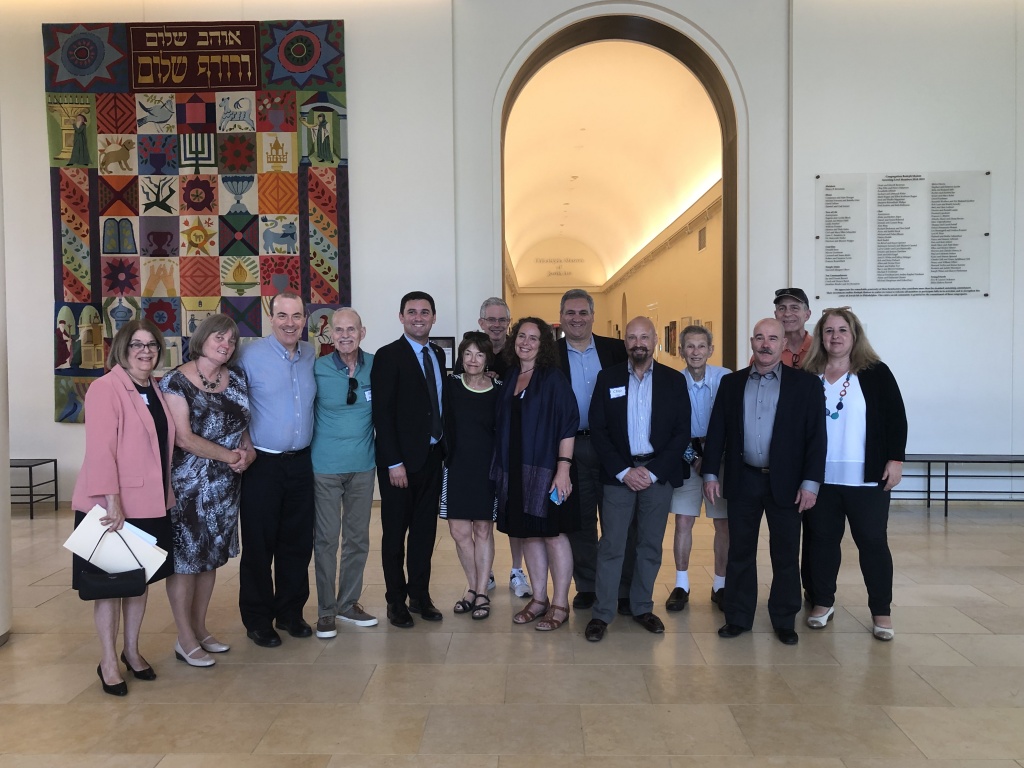When Eitan Ginzburg ran for mayor in his hometown of Ra’anana, Israel, some members of his synagogue tried to block him from attending prayer because of his sexual orientation.
More ran a homophobic campaign against him, shouting phrases such as, “There will not be a gay mayor” at polling places.
“They feared I would change the environment in the city,” Ginzburg said. “They feared the traditional structure of family would change and in kindergartens; they’d start to learn there is a new family with dad and dad or mom and mom.”
Earlier this month, Eitan Ginzburg, the first openly gay mayor of an Israeli city, marched in a Pride parade on the main street of Ra’anana — blocks from the synagogue that attempted to discriminate against him.
Ginzburg visited Philadelphia on Thursday to discuss LGBTQ rights in Israel with members of the Rodeph Shalom synagogue on Broad and Green streets.
In March 2018, Ginzburg became mayor of Ra’anana, in Israel’s northwest region, after serving on the City Council for 15 years. He represents the liberal Blue and White political party on the Knesset, Israel’s national legislature, and is fighting to bring legal rights to the country’s LGBTQ citizens.
“We do have rights…but all the rights we got we got from court, not from legislation,” Ginzburg said, noting a gap between LGBTQ religious acceptance in the country and conservative-leaning legislation that leaves out the community.
Ginzburg has a partner of more than 15 years with whom he has twins, born using a surrogate in Portland, Oregon. Israel granted his children citizenship because Ginzburg and his partner legally adopted them in the United States when they were born, Ginzburg said.
In the same way the country recognizes parental rights legalized outside of its borders, Israel recognizes LGBTQ matrimonies officiated in other nations, despite barring gay marriage, he added. Similarly, single men and gay couples are prohibited from using surrogacy to have children.
But Israel affords more liberties to its queer citizens than some may think.
Several locales have started holding annual Pride parades, Ginzburg said. Tel Aviv is hailed as one of the most gay-friendly cities in the world and the “gay capital of the Middle East.”
About 250,000 people attended the city’s Pride this year, while Birthright Israel offers LGBTQ trips for queer-identifying people of Jewish heritage looking to visit the country. Israel Defense Forces has drafted transpeople to the army since 2013 and covers costs of gender-affirming surgeries for recruits.
“If you need a place to choose where to be gay, Israel is one of the best places,” Ginzburg said, adding, “Israel is not that religious state in a war all the time.”
Members of the Rodeph Shalom congregation in North Philadelphia asked Ginzburg questions on topics including raising children in Israel as an out man, being a gay representative in the country’s political environment and the nation’s services for the LGBTQ community.
Henry Patterson, a Rodeph Shalom member for 28 years, said discussions like the one on Thursday strengthen the relationship between the United States and Israel.
“It’s great to hear that the gay and lesbian community in Israel is thriving and growing,” he said. “They’ve got a long way to go, but it’s great.”
As Ginzburg enters Israel’s upcoming elections, he said he’s ready to fight for LGBTQ protections.
“We are citizens, we have rights and we do all our duties and obligations,” he said. “We pay taxes, we go into the army, we do what everyone is doing, but we don’t get the same [legal] rights. This is what we’re fighting for.”
